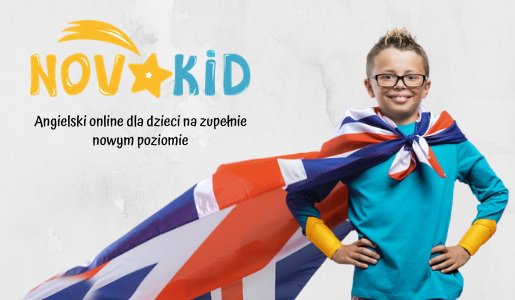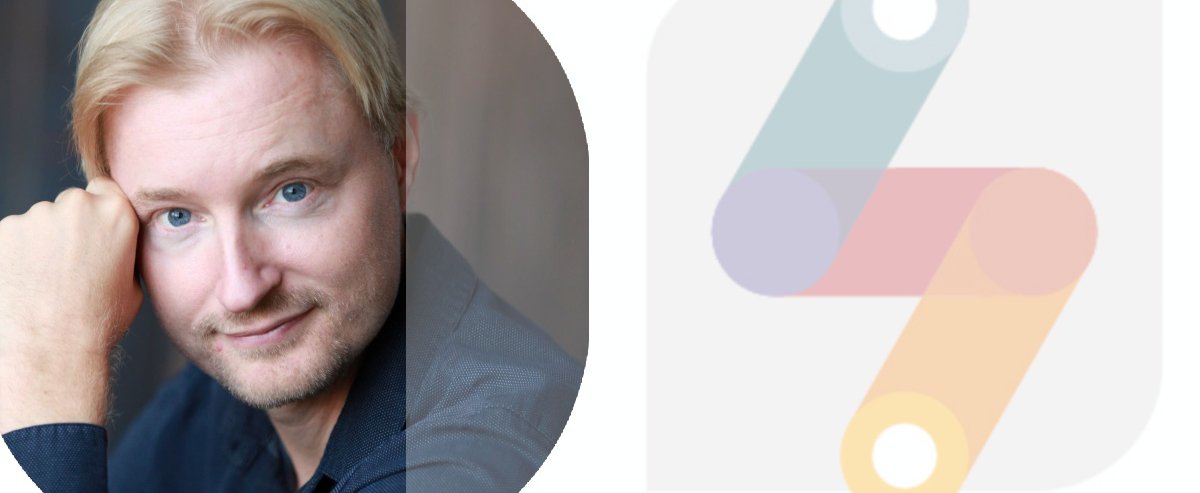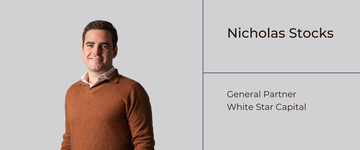"There is an appetite on the market for different edtech solutions. Duolingo is not our competitor" Max Azarov, Novakid
Novakidi s an online English learning platform for children. It has been founded in Krakow. This August, it has gained a record funding of around 29,5 mln. EUR from Silicon Valley VC's. What does it do, how does it teach and how does it define itself? We have asked Max Azarov - CEO and founder of Novakid.
What does Novakid do, how did it start, how did you get this idea for a learning app for children?
Max Azarov: I’m one of the co-founders and CEO of Novakid. It was initially my hobby. I have three kids and I have decided to raise them bilingual, with one of the languages being English. It was just something that I did, but I have found out how effective it is for kids. As it progressed, I started getting asked by other parents how to do that, and even to teach their children. I didn’t plan to change my career to become a teacher, so I started thinking on how to use technology to help more kids, as I really believed that thinking in more than one language transforms you as a person – it is quite a well known phenomenon, and kids that are exposed to such experience, get an enormous boost to their growth, and confidence in learning other languages.
At some point I saw that the Chinese market was a trailblazer, while the rest of the world was still considering online learning as something that only works for adults. The Chinese shown it was otherwise. We saw how the online language courses for children were growing there, I thought “Why isn’t something like this available outside of China?”
First we have simply built a copy of the most popular Chinese solution, but this has just been a beginning for us – we have used it as a test of our business model, and very quickly we have worked on our own product, that is tailored to the European and other western markets.
You are based in Krakow, registered in the US – why have you decided to start in Poland, and… are you a Polish startup, a European startup, or a US startup? How do identify?
It is of course no secret that Poland is very cost-effective as far as European Union locations are concerned, so if you want to be a EU company, Poland is a great place to be. Honestly, this was one main reason. This was a very pragmatic decision. We feel more European than Polish - as we have no Polish investors – in our last round, the leading investor was Hungarian. However, Poland is our main and leading market, even today. When looking at our network, our investors – it is a mix of European and US connections. Our US investors, that have joined us in round B, bring in a global network to the table – US based and otherwise, that helps us broaden our horizons.
In the world we live in it doesn’t make much sense to think “I am a Polish startup, this is what I’m going to do – I’m only going to talk to Polish startups and see where it leads me”. The world is just one Zoom call away.

You said it is quite easy to go global, but there are always huge, global players, like, in Your market – Duolingo, that is free and taking a huge portion of the market. You take an interesting approach, focusing on children. Do you think there is a place for apps that focus on niches to beat big players? Can you create a big app with this huge competitor?
We do not see Duolingo as a competitor. Their audience is mainly 25-35, and for us it is 4-12, so there is almost zero intersection. But it is absolutely possible. I have recently talked to a great, Hungarian founded startup –Drops, that is definitely giving Duolingo a run for its money, as fair as their scale goes. They specialize in one aspect of language learning – vocabulary training. That’s all they and they do it really well. They managed to scale to tens of millions of installs, and the founders made a great exit. I think it clearly shows that there is an appetite on the market for different solutions.
As far as children’s segment is concerned, it remains to be seen whether in this category we can create a self-based learning without a tutor component. Right now we are creating a hybrid solution – 30% tutor, 70% self-based learning. Kids like it, as they can both play themselves and interact with a living person, and parents like it too, as they feel it is both games, and “real learning” with a real person. Whether we can make it 100%, it remains to be seen.
As far as children’s learning is concerned, there is a lot of unmet need, and Duolingo is not any way a golden standard. One of the main issues I see with their product is that it uses translation method – basically you are using your first language to learn the second language. This is what teachers were doing when I was at school – it is a really old school method of learning. If you ask any language specialist, any linguist, they will tell you it is not the best way to learn the language. Going straight to the target language is a lot more physiological, it creates a better synapse image in your brain. So Duolingo works for adults, but definitely not for kids. So, if anyone reading this it thinking if they can compete with Duolingo – yes, you can, especially if you are designing something for younger learners.
As you have a live tutor, but the lessons are taking place online – did moving schools and every other activity online during the pandemic help your business, or does the online school experience make parents wary, and they want to move offline? Do you see any change in the numbers, feedback or anything, and is it the change for better or for worse?
Definitely for the better. The pandemic has definitely forced some parents to give it a try – they simply do not have other option, especially now, as Europe is going into lockdown again. We observed the same effect last year, during the first wave. But what we observe is that once parents try, they see it works. Then they become our ambassadors.
If you think about it, it makes perfect sense. It is convenient, it saves time, as you are not going anywhere. It is safe – no one can hurt your kid physically or psychologically – it is a very monitored environment, every class is recorded so you can observe the lessons, and you can schedule classes at any time you want, not adapting to school’s schedule. You can say “Ok, this week we will have classes at 5PM instead of 3PM”, and it’s totally fine. It is impossible for a physical location – and it’s cheaper. Most parents recognize great value.
You sort of answered the next question I wanted to ask – getting customers to stay. Do you think your customer or student retention is an issue, or do most of your students stay?
Retention is always an issue. If someone tells you they don’t worry about retention, they probably don’t do anything. Currently we have an industry golden standard retention – 50% for the EU countries. It means that half of our customers stay with us for a second year, which is very high. But I think we can do better than that! I am really concerned about the ones that don’t stay. We will get to you, and we have a lot of interesting things planned for you!
When it comes to your teachers – who are they? I have seen that you have quite strict guidelines for applying. Apart from the EFL certification – do they go through any special training? Do you build any special programmes for them or do you create any special community?
Absolutely. We are very proud of our teachers and we invest a lot in them. We have a teacher training department which provides ongoing training and support to make them even better, we have different incentive programmes for them to self-improve, we offer a lot of training materials for them that they can use on their own, including webinars, etc. etc. So we are not a marketplace where anyone can join whether they know anything about teaching or not. This is something that differentiates us. Also our teachers in other online platform have 4-5 students, with us it is 20-30, so our students have a lot more practice. They teach a lot more and they are good at it.
I believe in such approach, especially for children, where teaching quality is so important. It definitely helps us. It is also beneficial for them financially. We are a main source of income for many of our teachers.
You have already mentioned a few things about funding – especially the lack of Polish investors. You recently had quite a large funding round with a number of European VC’s. How did it help you, how are you developing and how are you using these funds?
The lack of Polish investors does not mean there was a lack of trying. We have reached out to Polish investors, we spoke to several, but to be honest, they were too slow for us – maybe they had other leads they were working on, I don’t know.
As I mentioned earlier, we are now developing our online portfolio. We want our students to stay on our platform even after they have finished their lessons with the tutor, and we want to drive this percentage to 70% - meaning that for every hour you spend with the tutor, you spend three on our platform, playing our learning games or interacting with our content. We are building our whole universe for kids, where they will be spending their time. We have already released a first batch of this content – with about 20% of our students having access to it. Our students that join us not only join Novakid Language School, but also Novakid Magic School, where they learn magic apart from English.
You said the goal is 70% - 30%, so how does it look at the moment?
It is about 50-50, one hour lesson, one hour on the platform – so we’re getting there!
You mentioned that pandemic helps you grow, that you are working with the US market. How does your growth look year to year and what are your plans for expansion?
We continue growing rapidly from 2020 through 2021, and in 2022 we will be at least tripling in size, probably even more. We are adding new countries – especially in Asia now. I think that, unlike the offline learning space which is extremely fragmented, the online space will not be fragmented. There will be a few companies that will take most of the market, and Novakid will be one of them. We are now the biggest school in Europe, and we are only starting.




